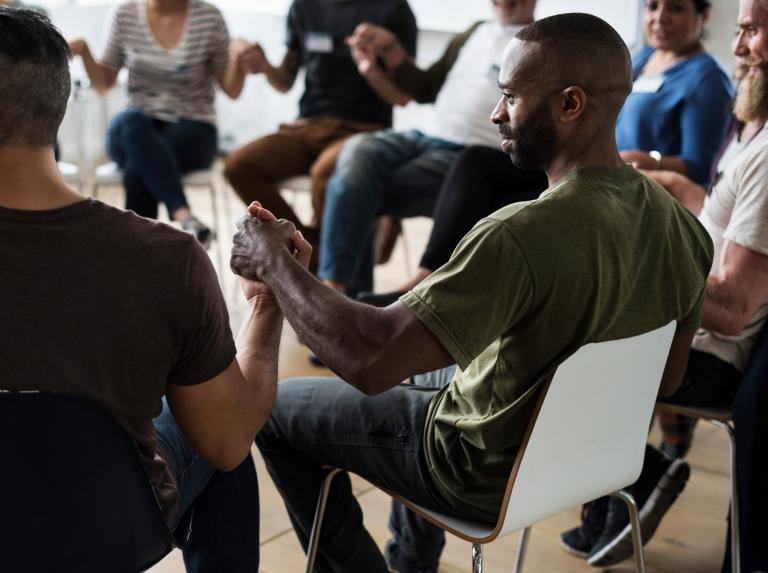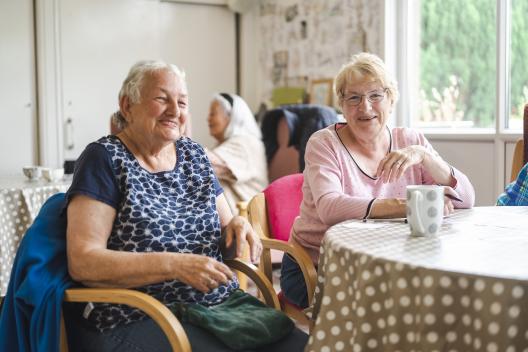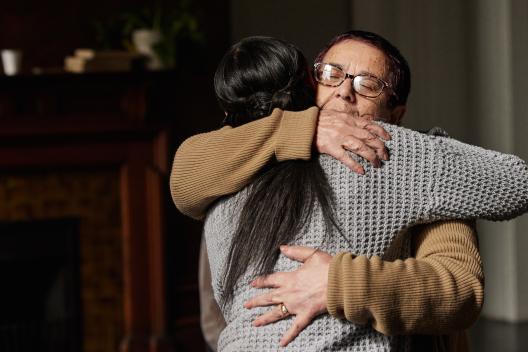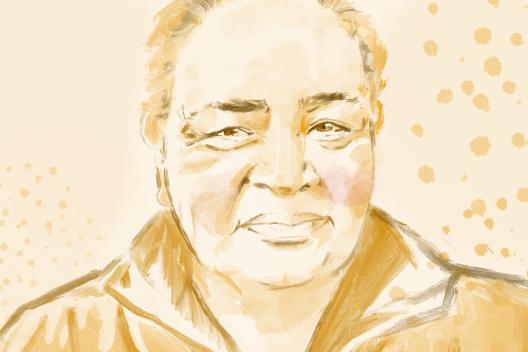For years it's been known that bureaucratic services are bad at supporting people with complex conditions. It’s also been known what a better and more human approach looks like. What hasn’t been widely understood is how to get reliably from bureaucratic to human, escaping the sticky bonds of inertia. As a result, many thought leaders and some policy makers, with the best of intentions, have exhorted services to be more human, but without creating the capabilities, incentives, capacity or conditions needed to enable this transformation to take place .
At Innovation Unit, we’ve developed, after many years of practice, what James Plunkett at Kinship Works calls a process of metamorphosis - a reliable way to transform a bureaucratic service into one that’s more human (holistic, person-centred, tailored, and strengths-based). This process starts with building a chrysalis - a safe space in which leaders, practitioners and communities can dissolve the bonds of bureaucracy, and form a more liquid state, full of possibility. Then, helping them to design - and practice - a more human way of doing things.
Living Well
Living Well is a programme of system transformation for people with complex mental health that we have supported through this approach over the past decade, with partners in London, Greater Manchester, Derbyshire, York and Edinburgh. Evaluations show that it works, with Living Well systems delivering better outcomes and reducing pressure on services, at a cost that falls within NICE guidelines.
James has used Living Well as a case study in his article Disassembling bureaucracy, exploring how this process actually makes the changes that are needed for this metamorphosis to succeed.
“Over several years this process has been refined into a way of disassembling a bureaucratic service, and reassembling a more coordinated offer that treats people as humans. It does this in a comprehensive way, covering all aspects of metamorphosis - disassembly, re-imagination, reassembly, and even the survival of the new service/organism. It works with people who have complex conditions, learning from their experience. And the process is sufficiently systematic and well-documented that it can be reliably and affordably repeated.”
We’re delighted to see our work - and the work of local leaders, practitioners and people, who have embraced and sustained the work of Living Well so passionately profiled in this way.
Read the full article and find out more about our approach to neighbourhood health.
Join our webinar
If you’d like to find out more about how local systems can move from bureaucratic to human, we’re hosting a webinar with James to dive into the details:
From bureaucratic to human - 9-10.30am, 26th November, Microsoft Teams.
This free event is an opportunity for anyone wanting to explore:
- why systems that prioritise relationships, act early and work locally, create better outcomes and are better placed to meet people's needs;
- what helps and hinders progress;
- how change is already being put into practice in places across the UK.
Hosted by Rachel Shapcott, our Head of Mental Health, and Stacey Hemphill, our Head of Practice, the session will draw on real-world examples from teams and partnerships already working in this way, as well as James’ insights into the policy context.
For anyone working to turn national ambitions into local action, this is a chance to pause and reflect, connect and share experiences with peers, and explore what makes lasting change possible and this might apply in your own local context.
Share this page





